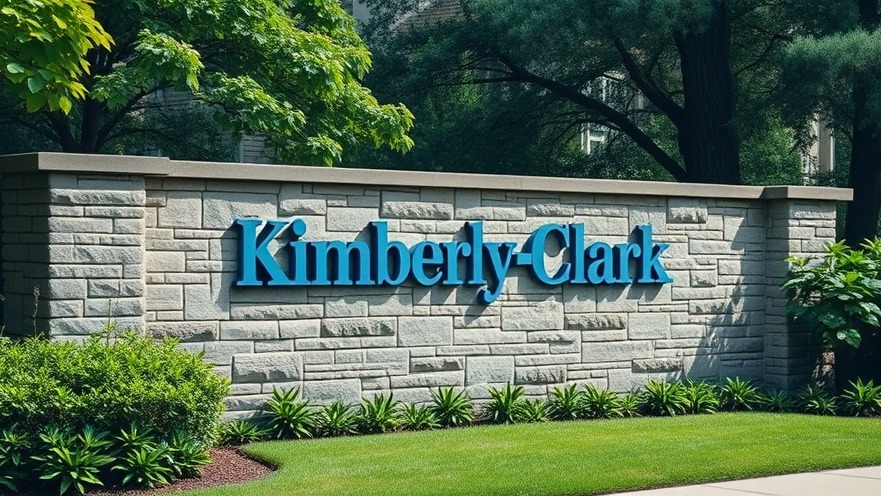
Kimberly-Clark's $40 Million Settlement: A Significant Blow
Kleenex maker Kimberly-Clark has recently agreed to a substantial $40 million settlement with the federal government following allegations of improper billing practices related to medical gowns. This settlement is part of a broader enforcement effort by the Department of Justice aimed at curbing fraud in the healthcare industry. In light of the recent COVID-19 pandemic, the focus on healthcare suppliers has escalated, placing significant scrutiny on compliance and ethical practices.
Understanding the Implications for Kimberly-Clark
This settlement not only impacts Kimberly-Clark financially but also raises questions about corporate accountability in America's manufacturing sector. Kimberly-Clark, a Fortune 500 company headquartered in Dallas, has been a leader in personal care and hygiene products for decades. However, this incident highlights that even established corporations are not immune to legal challenges. The settlement funds aim to resolve claims that the company knowingly overbilled the federal government for the personal protective equipment supplied amid the pandemic.
The Fallout in the Dallas Business Ecosystem
The ramifications of this settlement extend beyond the company's financials. With Dallas emerging as a vibrant hub for the business landscape, Kimberly-Clark’s legal troubles could influence investor perceptions and local economic development. As Dallas continues to attract tech startups and entrepreneurs, the integrity of established corporations becomes crucial for community trust and future investments. Moreover, the Dallas Chamber of Commerce will be closely monitoring how this event unfolds, as corporate health can significantly affect Dallas job growth and economic stability.
A Comparative Look: Lessons from Other Corporations
Kimberly-Clark is not alone in facing legal challenges concerning ethical business practices. Other major corporations have recently settled similar allegations; for example, health insurer Anthem and technology giant IBM have both faced their scrutiny in previous years. These cases serve as critical reminders that as businesses grow, their practices must evolve accordingly. Dallas leaders must advocate for transparent business conduct to maintain the city's reputation as an innovation hub.
Future Predictions: Regulatory Trends in Dallas
Looking ahead, the incident involving Kimberly-Clark may prompt stricter regulations and oversight of the Dallas manufacturing sector. With increasing scrutiny from federal agencies, Dallas-based companies might need to invest in comprehensive compliance programs and auditing systems. Conversations around Dallas corporate taxes and anti-fraud measures are likely to gain momentum, pushing business networks to prioritize ethical practices more than ever.
Community Response and Economic Outlook
The local community's reaction to Kimberly-Clark's settlement indicates a call for accountability. Dallas residents and local businesses may feel unsettled by the settlement, prompting discussions regarding corporate responsibility. This awareness can catalyze further advocacy for local businesses, particularly small and minority-owned enterprises, aligning with the city's goals of inclusivity and support for diverse economic development.
Why Civilians Should Care
In an era where corporate transparency is increasingly scrutinized, the resolution of this settlement matters not just to shareholders but to everyday citizens. As consumers, the products and practices of companies they support can have ethical implications. The claims against Kimberly-Clark may lead to more significant consumer advocacy for transparency, advocacy which is important for maintaining ethical standards across the Dallas retail businesses landscape.
Take Action: Stay Informed and Engaged
As the Dallas economic environment becomes dynamically entwined with local corporate practices, residents should remain vigilant. Engaging with local chambers of commerce or community organizations focused on sustainable business practices can catalyze essential dialogues around corporate responsibility. By prioritizing ethical companies, Dallas residents can foster a thriving economic landscape.
 Add Element
Add Element  Add Row
Add Row 



Write A Comment